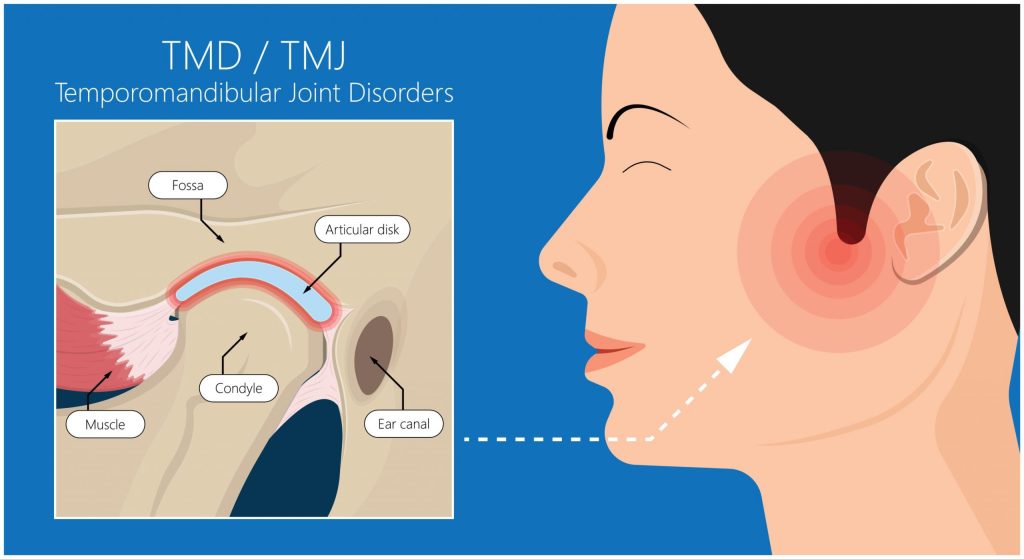Understanding TMJ and its Impact
Temporomandibular joint disorder (TMJ) is a condition that affects the jaw joint and the surrounding muscles. It can cause various symptoms such as jaw pain, difficulty in opening and closing the mouth, clicking or popping sounds, and even headaches or earaches. While some may dismiss TMJ as a minor inconvenience, it is important to take it seriously due to its potential impact on daily life and overall well-being.
The Importance of Seeking TMJ Treatment
TMJ can significantly affect a person’s quality of life. The pain and discomfort associated with the disorder can make it difficult to eat, speak, and even sleep. It can lead to chronic headaches and migraines, which can impact productivity and overall mood. Additionally, untreated TMJ can worsen over time, leading to more severe symptoms and potential complications.
Benefits of TMJ Treatment
Seeking professional TMJ treatment in Delhi can provide numerous benefits and improve the overall quality of life. Here are some reasons why it is important to take TMJ seriously and seek treatment:
1. Pain Relief
TMJ treatment aims to alleviate the pain and discomfort associated with the disorder. Through various techniques such as jaw exercises, medications, or even dental devices, a TMJ specialist in Delhi can help reduce or eliminate the pain, allowing individuals to regain normal jaw function and enjoy a pain-free life.
2. Improved Jaw Function
TMJ can cause limitations in jaw movement, making it difficult to perform everyday activities such as eating or speaking. With proper treatment, individuals can regain normal jaw function, allowing them to eat their favorite foods, speak clearly, and engage in social interactions without discomfort or limitations.
3. Prevention of Further Complications
Untreated TMJ can lead to more severe symptoms and potential complications. Chronic jaw pain and muscle tension can contribute to the development of other dental issues such as teeth grinding, tooth damage, or even misalignment. By seeking timely treatment, individuals can prevent these complications and maintain their oral health.
4. Improved Sleep and Overall Well-being
TMJ pain can make it difficult to get a good night’s sleep, leading to fatigue and decreased overall well-being. By addressing the underlying causes of TMJ and finding effective treatment, individuals can experience improved sleep quality, increased energy levels, and a better overall sense of well-being.
5. Customized Treatment Approach
Each individual’s TMJ condition is unique, and a professional TMJ specialist in Delhi will provide personalized treatment plans based on the specific needs and symptoms. This ensures that the treatment approach is tailored to address the individual’s concerns effectively, providing the best possible outcome.
FAQ About TMJ Treatment
What is TMJ?
TMJ stands for temporomandibular joint, which is the joint that connects the jawbone to the skull. TMJ disorders refer to a range of conditions that affect the jaw joint and the surrounding muscles. These conditions can cause pain and discomfort in the jaw, face, and neck, as well as problems with jaw movement.
What are the common symptoms of TMJ disorders?
The symptoms of TMJ disorders can vary from person to person, but some common signs include:
- Pain or tenderness in the jaw joint
- Pain in the face, neck, or shoulders
- Difficulty or discomfort while chewing
- Clicking, popping, or grating sounds in the jaw joint
- Locking of the jaw joint
- Headaches or earaches
What causes TMJ disorders?
The exact cause of TMJ disorders is often unknown, but there are several factors that can contribute to their development. These include:
- Bruxism (teeth grinding or clenching)
- Arthritis in the jaw joint
- Injury or trauma to the jaw
- Misalignment of the jaw or teeth
- Stress and tension
How is TMJ treated?
TMJ treatment aims to relieve pain and improve jaw function. The specific treatment approach will depend on the underlying cause and severity of the condition. Some common treatment options include:
- Medications: Pain relievers, anti-inflammatory drugs, and muscle relaxants may be prescribed to alleviate symptoms.
- Oral appliances: Splints or mouthguards can help to reposition the jaw and reduce teeth grinding or clenching.
- Physical therapy: Exercises and techniques to improve jaw movement and reduce muscle tension may be recommended.
- Stress management: Techniques such as relaxation exercises or counseling can help to reduce stress and tension in the jaw muscles.
- Dental treatments: In some cases, dental treatments such as orthodontics or dental restorations may be necessary to correct bite alignment issues.
Is surgery required for TMJ treatment?
Surgery is typically considered as a last resort for TMJ treatment and is only recommended in severe cases where conservative treatments have been unsuccessful. Surgical options may include arthroscopy, joint replacement, or joint reconstruction.
How long does TMJ treatment take?
The duration of TMJ treatment can vary depending on the individual and the severity of the condition. Mild cases may resolve with self-care measures and conservative treatments within a few weeks or months. However, more complex cases may require ongoing management and treatment over a longer period of time.
Can TMJ disorders be prevented?
While it may not be possible to prevent all cases of TMJ disorders, there are some steps you can take to reduce your risk:
- Avoid excessive teeth grinding or clenching by using stress reduction techniques or wearing a mouthguard at night.
- Maintain good posture and avoid resting your chin on your hand or holding your phone between your shoulder and ear.
- Eat a soft diet and avoid chewing gum or biting into hard foods.
- Practice good oral hygiene and visit your dentist in Delhi regularly for check-ups.
Where can I find TMJ treatment in Delhi?
If you are looking for TMJ treatment in Delhi, it is important to consult with a qualified TMJ specialist. They will be able to assess your condition and recommend the most appropriate treatment plan for you. You can search online for TMJ specialists in Delhi or ask for recommendations from your dentist in Kirti Nagar or healthcare provider.
Remember, early diagnosis and treatment of TMJ disorders can help to prevent further complications and improve your quality of life. If you are experiencing any symptoms of TMJ, don’t hesitate to seek professional help.
Conclusion
TMJ is a condition that should be taken seriously due to its potential impact on daily life and overall well-being. Seeking professional TMJ treatment in Delhi can provide pain relief, improve jaw function, prevent further complications, enhance sleep quality, and ensure a customized treatment approach. By addressing TMJ early on, individuals can regain control over their lives and enjoy a pain-free and comfortable existence.


 Comments (
Comments ( Category (
Category ( Views (
Views (